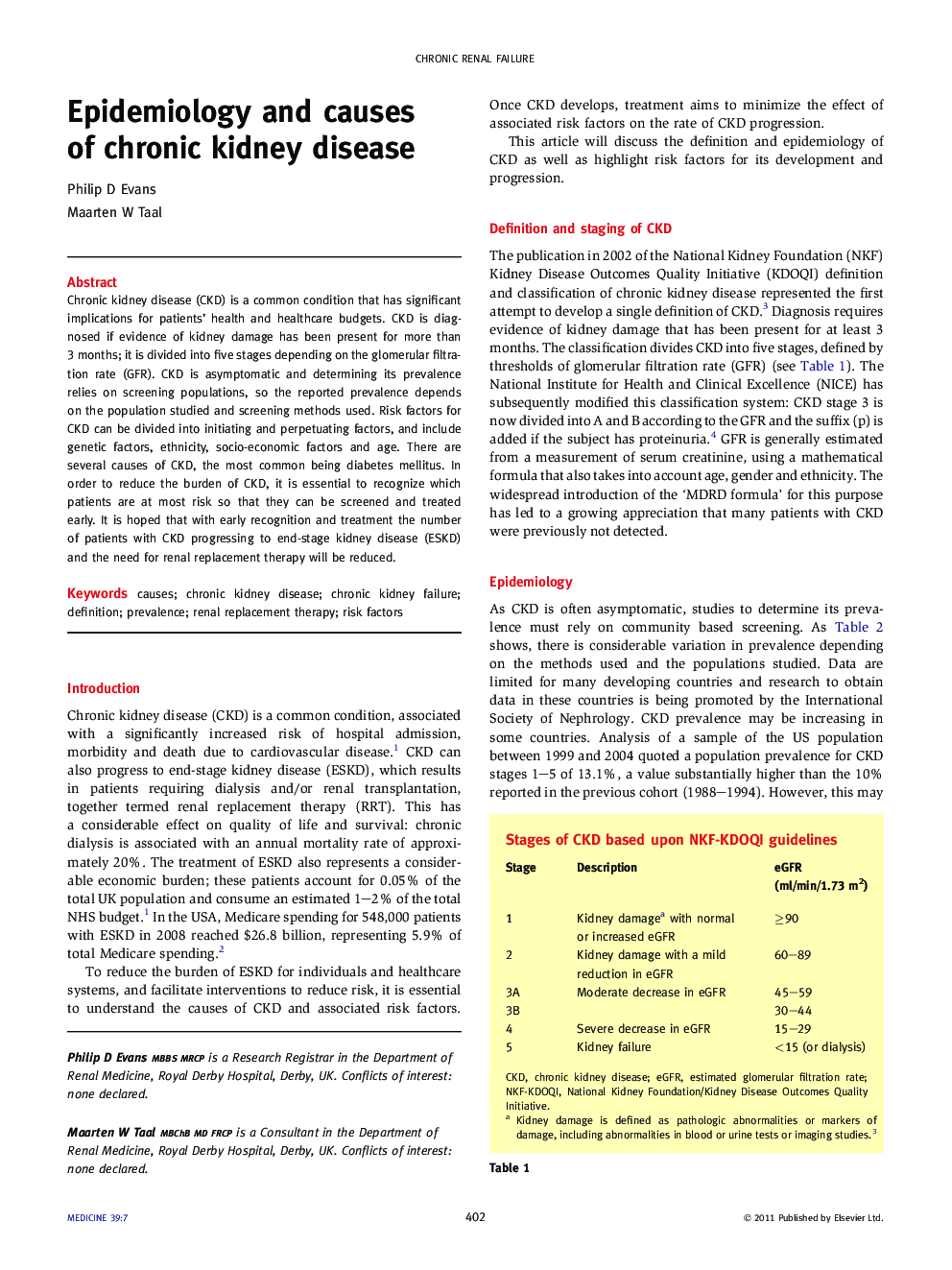| Article ID | Journal | Published Year | Pages | File Type |
|---|---|---|---|---|
| 3804992 | Medicine | 2011 | 5 Pages |
Chronic kidney disease (CKD) is a common condition that has significant implications for patients’ health and healthcare budgets. CKD is diagnosed if evidence of kidney damage has been present for more than 3 months; it is divided into five stages depending on the glomerular filtration rate (GFR). CKD is asymptomatic and determining its prevalence relies on screening populations, so the reported prevalence depends on the population studied and screening methods used. Risk factors for CKD can be divided into initiating and perpetuating factors, and include genetic factors, ethnicity, socio-economic factors and age. There are several causes of CKD, the most common being diabetes mellitus. In order to reduce the burden of CKD, it is essential to recognize which patients are at most risk so that they can be screened and treated early. It is hoped that with early recognition and treatment the number of patients with CKD progressing to end-stage kidney disease (ESKD) and the need for renal replacement therapy will be reduced.
